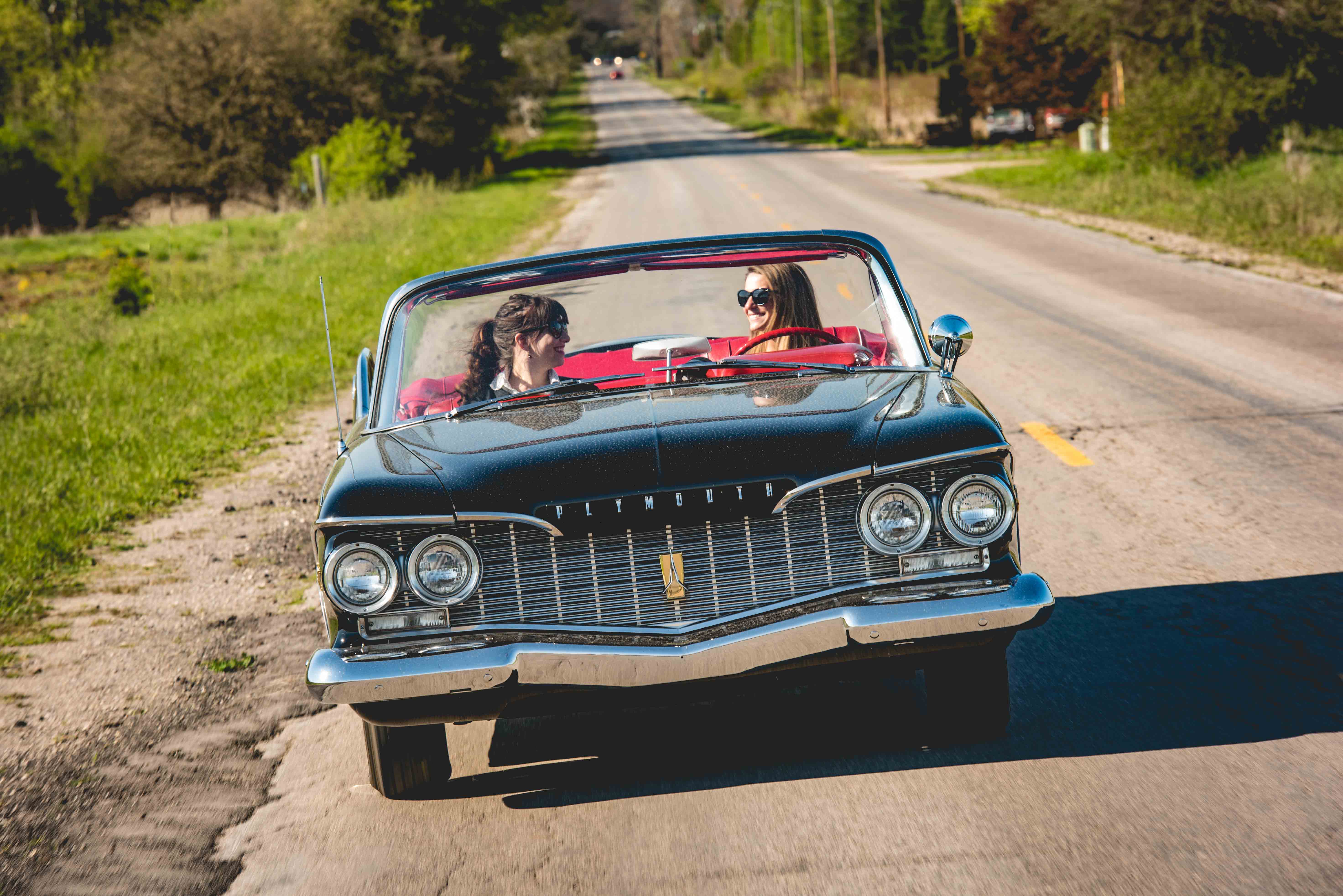Gen Xers and millennials are ready to carry the collectible-car torch
We are surrounded by stuff that will outlast us. The house and the furniture will go to someone else when you’re gone, and because common ceramics are the man-made thing lasting the longest, that coffee mug that says “Grumpy Old Fart” will still be around in thousands of years. Chances are your vintage vehicle has already outlived at least one or two owners, and if those former caretakers of your slick machine could see the snot-nosed kid that has the keys now, do you think they would approve?
Already blamed for the death of everything from neckties to napkins, millennials are often pegged as the generation that will bring doom to the collectible-car market—at least according to commonly overheard jeremiads at car shows and auctions that prophesy the imminent collapse of everything good. Baby boomers, the theory goes, still make up the vast majority of classic-car buyers, collectors, and drivers. As boomers exit the hobby one way or another, members of the subsequent generations X and especially Y, the so-called millennial generation born in the 1980s and ’90s, lack the enthusiasm to maintain any sort of demand for old cars and their antiquated, non-computerized technology. Prices will collapse for almost every boomer-iconic vehicle from before the 1980s, which will in turn drag down the entire market.
Although everyone knows, just knows, that today’s kids don’t care about old cars, data collected by Hagerty, which fields between 2000 and 2500 calls a day from the public, tells a significantly more upbeat story. It’s true that baby boomers account for the plurality of demand in the collectible-car market—about 42 percent according to Hagerty data. But as of the fourth quarter of 2017, the most recent data available, Generation X and the millennials have matched the boomers and their elders, the so-called greatest generation, in terms of demand.

And whereas the average buyer is still a boomer (barely—right now, the tail end of that generation is in their early 50s), the result of the growth in the overall market and among younger generations in particular means there are as many collectors in their early 40s today as there were collectors in their early 50s eight years ago, and as many early-30s collectors now as there were early-40s collectors then. Younger generations are absolutely entering the collectible-car market to replace those who are exiting, and the continuing extreme popularity of the hobby among boomers should not be mistaken for a lack of popularity among younger collectors.
Also worth noting is that the hobby’s popularity among boomers is continuing and extreme, despite their advancing age, suggesting that doom-and-gloom predictions about when a collector begins a sell-off might be exaggerated. To investigate this, Hagerty looked at 1000 top collectors in 2010 and tracked their behavior during the subsequent eight years. The average age of these collectors is 68 today, solidly in the baby boom generation. Collectors adding vehicles, on net, outnumbered collectors subtracting them 470 to 390, with the remaining 140 maintaining a collection of the same size. In all cases, age was not a factor in determining who would expand or contract a collection.
Collectors who decreased their collection size primarily sold off cars from the 1940s to the 1970s, and they primarily sold off American cars. People who increased their collections primarily added cars from the 1980s and ’90s, especially cars from Germany.

In a separate study, Hagerty investigated the values of 10,000 specific vehicles currently insured by high-net-worth individuals that can be traced, using the VIN, to a different owner and a value in the past, going back seven years. For 62 percent of the cars, the value now is greater than the previous value, and, on average, cars have a value that is 20 percent greater than the older value. Included in the set of 10,000 cars with two or more owners were 830 cars where the current owner was at least 25 years younger than the previous owner—in other words, cars that have moved from an older generation to a younger generation. In these cases, 51 percent have a current value greater than the previous value, and, on average, their current value is only five percent greater than their original value.
What does it all mean? Younger generations do seem to exert some downward pressure on car prices, or at least on their insured values. In particular, Volkswagens and vehicles from the Big Three American manufacturers are most likely to lose value from one generation to the next. That is partly explained by the fact that younger people simply have less money to pay for cars. Even so, there are some marques that younger generations tend to value more than their original older owners did, including luxury brands such as Ferrari, Porsche, BMW, Alfa Romeo, Jaguar, and Mercedes-Benz.

Particular tastes and values might shift across generations, but on the whole, the growth that the collectible-car hobby enjoyed over the past few years was not driven exclusively by baby boomers. Gen Xers have reached their prime earning years and collect as enthusiastically as the boomers did before them. We are already seeing the influence of 100-million-strong millennials, who are entering the hobby in greater numbers every day.
You might not be around to see who eventually inherits your precious collectible, but all evidence suggests that someone out there, someone who might be in diapers or playing video games on a phone rather than doing algebra homework, will want it. When that time comes, that kid, that snot-nosed, pimple-faced phone junkie, might prove to be not all that different from you.
The article first appeared in Hagerty Drivers Club magazine. Click here to subscribe to our magazine and join the club.




